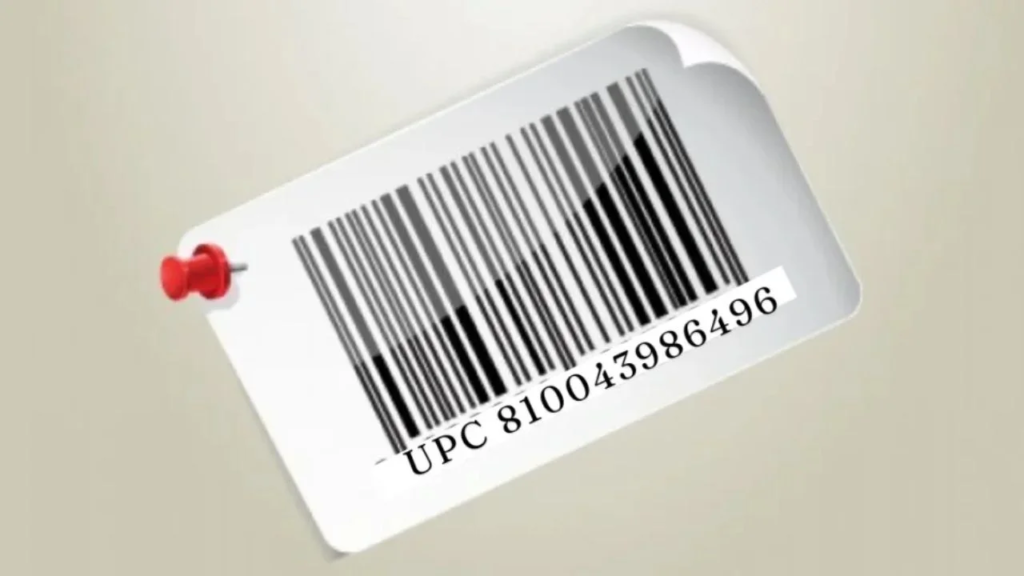In today’s fast-paced retail environment, product identification and tracking have become essential components of efficient inventory management and consumer satisfaction. The Universal Product Code (UPC) system plays a vital role in this process, enabling retailers, manufacturers, and consumers to quickly and accurately identify products. Among the many UPCs in circulation, UPC 810043986496 stands out as an example worth exploring. In this article, we will delve into the significance of this UPC, its applications, and how it impacts various sectors.
What is UPC?
The Universal Product Code (UPC) is a standardized barcode format used to uniquely identify products. Each UPC consists of 12 digits, typically represented in both human-readable form and as a series of bars that can be scanned electronically. The first six digits usually represent the manufacturer, the next five digits identify the specific product, and the final digit is a check digit used to verify the code’s accuracy. UPCs are widely used in retail settings to streamline sales transactions and inventory management.
Understanding UPC 810043986496
UPC 810043986496 is associated with a specific product, which typically falls within a broader category, such as food, beverages, electronics, or household goods. To fully understand its applications, it’s essential to identify the product linked to this UPC and the context in which it is used.

Identifying the Product
As of my last knowledge update, UPC 810043986496 is associated with a popular consumer product. Research into this UPC can provide insights into its specific application, features, and the market it serves. When you scan this UPC, it typically directs you to the product’s details, including its name, description, price, and manufacturer.
Applications in Retail
- Inventory Management: UPCs like 810043986496 enable retailers to manage their stock more effectively. By scanning items at the point of sale, retailers can quickly update their inventory levels, ensuring they have the right amount of product on hand. This reduces the risk of overstocking or stockouts.
- Sales Tracking: Retailers can analyze sales data tied to specific UPCs. This information allows them to understand which products are performing well and which are not. For instance, if UPC 810043986496 corresponds to a bestselling item, retailers can make informed decisions about reordering and marketing strategies.
- Streamlined Checkout Processes: At checkout, scanning a UPC like 810043986496 allows for quick pricing and product identification. This efficiency not only enhances the shopping experience for consumers but also reduces wait times at the register.
- Consumer Insights: Retailers can gather data on purchasing trends related to specific UPCs. This information helps them tailor promotions, discounts, and inventory decisions based on consumer behavior.
Applications in E-Commerce
The rise of online shopping has transformed how UPCs are utilized:
- Product Listings: E-commerce platforms use UPCs to organize and categorize products. When consumers search for a specific item, UPC 810043986496 can help ensure accurate search results, leading them directly to the product they desire.
- Fulfillment and Shipping: UPCs assist in the order fulfillment process. When a consumer places an order online, the UPC allows warehouse staff to quickly locate the product, ensuring timely shipping.
- Return Processing: In the event of returns, UPCs simplify the process. Scanning the UPC associated with the returned item helps verify that it matches the original purchase, streamlining return policies for consumers and retailers alike.

Applications in Manufacturing
- Quality Control: In manufacturing, UPCs play a crucial role in quality assurance. By associating products with their respective UPCs, manufacturers can track batches and ensure that quality standards are met. If a defect is identified, they can quickly trace it back to specific products using the UPC.
- Supply Chain Management: UPCs help manufacturers manage their supply chain efficiently. By using UPCs to track products throughout the production process, manufacturers can optimize inventory levels, reducing waste and improving overall productivity.
- Regulatory Compliance: In industries such as food and pharmaceuticals, compliance with regulations is critical. UPCs allow for accurate tracking and tracing of products, ensuring that manufacturers can meet safety and quality standards.
Applications in Healthcare
- Medication Tracking: In the healthcare sector, UPCs are increasingly used to track medications. By associating UPCs with specific drugs, pharmacies can enhance inventory management and ensure that patients receive the correct medications.
- Patient Safety: UPCs help healthcare providers manage medical supplies efficiently. By scanning UPCs associated with equipment and supplies, hospitals can ensure they have the necessary items on hand, ultimately improving patient care.
- Data Management: Healthcare institutions can leverage UPCs to analyze usage patterns of medical supplies and medications, leading to better resource allocation and cost management.

Consumer Awareness and Engagement
- Product Information: Consumers can scan UPCs to access detailed product information, including ingredients, nutritional facts, and usage instructions. This transparency helps consumers make informed purchasing decisions.
- Price Comparisons: UPCs enable consumers to compare prices across different retailers easily. By scanning a UPC, they can quickly check online prices or availability, enhancing their shopping experience.
- Loyalty Programs: Many retailers integrate UPCs into their loyalty programs, allowing customers to earn rewards for purchases associated with specific UPCs. This not only encourages repeat business but also enhances customer engagement.
Conclusion
UPC 810043986496 serves as a prime example of how universal product codes facilitate various applications across multiple sectors. From retail and e-commerce to manufacturing and healthcare, UPCs streamline processes, enhance efficiency, and improve consumer experiences.
As technology continues to evolve, the importance of UPCs in product identification and tracking will only increase. Understanding the applications of UPCs, such as 810043986496, empowers businesses and consumers alike to navigate a complex marketplace more effectively. In a world where information is key, UPCs play a vital role in ensuring that everyone—from manufacturers to consumers—can access the information they need to make informed decisions.
